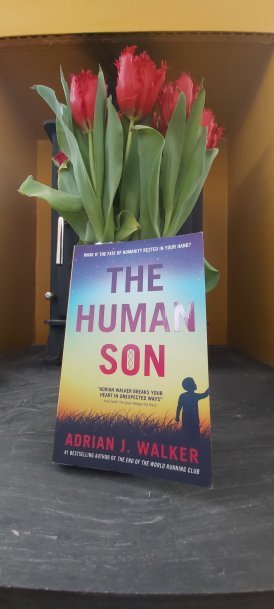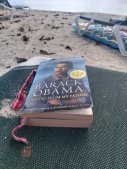Book Review: A Comparative Look at We and The Human Son
Introduction

After immersing myself in the classic dystopian novel We by Yevgeny Zamyatin, I decided to catch up with contemporary dystopian literature. Having previously enjoyed Adrian J Walker’s futuristic novels, The Last Dog on Earth and The End of the World Running Club, I wondered if Walker’s latest release, The Human Son, would offer a similar gripping experience. Given the past year’s often bleak reality, was I seeking another dystopian journey?
The Human Son: A Different Dystopian Experience
kevinrunsblog.com – Book Review: A Comparative Look at We and The Human Son . Fortunately, I needn’t have worried. Walker’s latest novel, published in 2020, offers a refreshing departure from his previous works. Unlike typical dystopian tales, The Human Son provides a unique perspective and is a beautifully crafted read.
Plot Overview and Setting
At first glance, The Human Son seems to contain all the elements of a dystopian narrative: set around 500 years in the future, Earth is no longer inhabited by humans. However, this novel quickly introduces an element of hope. The Erta, a race created as a final attempt to reverse human damage, now sparsely inhabit the planet. Over these centuries, they have successfully restored Earth’s health. Consequently, this book diverges from traditional dystopian or science fiction stories, presenting a thriving Earth rather than a decaying one.
The Role of The Erta and The Human Son
So, why the title The Human Son? The Erta, believing their mission is complete, decide to conduct an experiment. They create a Homo Sapien child, Reed, to observe how he adapts and responds to the world. Walker’s talent for capturing the essence of his characters is evident, particularly in Ima, who is chosen to be Reed’s ‘mother’. Her role adds depth to the story, which is delivered with poetic elegance.
Narrative Style and Emotional Impact
The writing in The Human Son feels almost poetic at times, drawing me into the story completely. It’s clear that a book has truly engaged me when my phone remains untouched during work breaks, or I find myself reading while cooking. Compared to other literary works I’ve recently explored, The Human Son felt refreshingly straightforward in its delivery. While it maintains depth, it avoids unnecessary complexity, focusing on delivering a compelling narrative.
Themes and Reflections
Walker’s novel goes beyond typical genre expectations. It serves as both a climate emergency narrative and a study of societal collapse. The book examines how even a scientifically created race can fall into factional disputes. Additionally, it offers a profound exploration of parenthood, childhood, and coming of age. As I delved deeper into the story, I saw reflections of our current environmental and societal issues, presented in a way that feels both relevant and thought-provoking.
Comparing to We: A Timeless Dystopian Masterpiece

Recently, I posted a picture of We on social media, prompting a friend to mention that he had read it 50 (fifty!) years ago. By then, the book was already nearly 50 years old. Originally written in Russian during the 1920s, We didn’t appear in print in Zamyatin’s homeland until the 1980s. Throughout its life, it has seen various translations, with my copy being the 1996 Clarence Brown translation, universally recognized as faithful to the original text.
Influence and Comparisons
We is often cited as an inspiration for George Orwell’s 1984. This comparison is compelling, given the timing. I plan to re-read 1984 to form my own opinion about this connection. Additionally, it’s rumored that Aldous Huxley might not have had the chance to read We before writing Brave New World.
Standalone Literature
Despite these comparisons, We stands out as a fine piece of literature in its own right. While I’m a fan of dystopian novels, We transcends typical genre boundaries. Thus, it leans more towards an anti-utopia, exploring themes beyond the standard dystopian narrative.
Plot and Setting
Set in a world called One State, where nature and ancient traditions are excluded by a green wall, We depicts a society ruled by The Benefactor, a figure worshipped and served by all. The story is narrated in the first person by D-503, the protagonist who, like everyone else in this society, is identified by a code number rather than a name. The narrative unfolds through a series of written records intended for other worlds.
Narrative Style and Themes
The novel is an intense read, lacking the grand gestures or jingoism found in other dystopian fiction. The narrator reveals a story of rebellion and glimpses of the outside world with a personal, details, and increasingly emotional tone. Much like Winston in 1984, D-503 is drawn into anti-One State ideas by I-330, a character who seduces and leads others into rebellion.
Prose and Reflection
The prose can be quite introspective and personal to D-503, with his mental state fluctuating as his loyalties shift. For this reason, I found the abstract nature of his thoughts challenging at times, requiring some re-reading to fully grasp his motives.
Cultural and Historical Reflections
Generations of readers have resonated with We, reflecting the fears and anxieties of their respective eras. This critique of both perceived socialism and communism, as well as potential fascist states with unremovable leaders, adds depth to the narrative.
Final Thoughts
In conclusion, both The Human Son and We offer unique and thought-provoking perspectives on dystopian fiction. The Human Son provides a refreshing take with its hopeful vision of the future, while We remains a powerful and introspective exploration of dystopian themes. Each novel invites readers to reflect on societal issues and human nature, making them both highly recommended reads.
